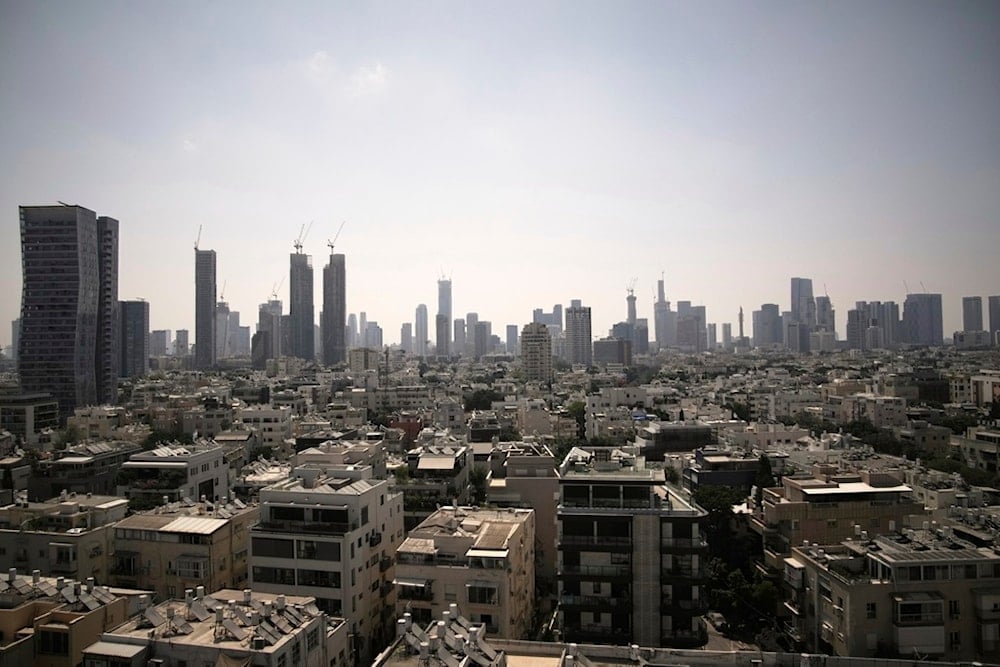'Israel's' markets tumble as Gaza genocide fuels global backlash
"Israel's" stock market slump deepens as the Gaza genocide, EU trade threats, and mounting global isolation expose the fragility of its war-driven economy.
-

A general view of Tel Aviv's skyline, Friday, June 13, 2025. (AP Photo/Leo Correa)
Bloomberg on Thursday reported that Israeli stocks have entered their steepest slide in 18 months, as the weight of the Gaza genocide and mounting international backlash shakes investor confidence.
The benchmark TA-35 index fell another 1.8%, extending a six-day losing streak and wiping out 4.3% of market value since September 9. While the equity selloff has accelerated, the shekel and "Israel's" foreign-currency bonds have so far remained comparatively steady.
The downturn coincides with a decisive move in Brussels. The European Union has proposed suspending "Israel's" preferential trade status, a step that would force Israeli exports to face the same tariffs as those of countries with no trade pact.
The measure, if adopted by member states, would target billions of euros in goods and mark one of the first significant trade penalties in response to "Israel's" campaign of destruction in Gaza.
War economy
Facing this growing isolation, Prime Minister Benjamin Netanyahu conceded earlier in the week that "Israel" could no longer rely on traditional partners.
His call for "self-reliance" rattled markets before he sought to walk back the remarks, insisting that his comments referred only to military independence. He nevertheless vowed to expand "Israel's" domestic arms industry, a clear acknowledgment of the war economy "Israel" has built on the backs of Palestinians.
Investor sentiment has undergone a dramatic reversal. After the October 7, 2023, events, Tel Aviv markets initially collapsed but then rebounded sharply, soaring 83% and adding more than $200 billion in shareholder wealth by mid-2025.
Yet that rally has collapsed in recent days, as global outrage intensifies over "Israel's" escalated ground assault on Gaza City and the recent attack on Qatari soil.
Economic unraveling
The financial picture mirrors a broader economic unraveling. War spending has driven "Israel's" deficit to nearly 7% of GDP, debt has climbed, and Moody's has twice downgraded the occupation's credit rating since 2024.
Tourism and foreign investment have dried up, gas production has been repeatedly disrupted, and foreign funds are reducing exposure to Tel Aviv's markets.
Meanwhile, boycott campaigns and arms-export curbs in Europe are adding further pressure, showing that global solidarity with Palestinians is beginning to translate into concrete economic costs for "Israel."
Read more: 'Israel’s' economy shrinks 3.5% amid war on Iran and Gaza costs
While global markets continue to rally on expectations of US Federal Reserve rate cuts, "Israel's" bourse has been left behind.
The six-day slide in Tel Aviv is now the steepest among all major global equity benchmarks tracked by Bloomberg, underscoring that the real price of "Israel's" genocide is increasingly being borne at home.

 3 Min Read
3 Min Read










